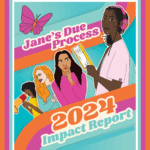Dating Violence and Pregnancy
Many teens do not even realize that they are in an abusive relationship or know how to get help.
Abuse is not limited to physical attacks. No boyfriend should EVER try to make you believe that you deserve to be treated badly or that you need to be controlled by him. Emotionally abusive relationships very often escalate to include physical and sexual violence too. Jealousy, possessiveness and control are common themes of dating violence.
Some abusers try to get their girlfriend’s pregnant, even if they don’t want to be pregnant, as a way to maintain control over them. Dating violence increases your likelihood of getting pregnant. Being pregnant is associated with an increased risk of assault.
If you have questions about abusive relationships or if you just want someone to talk to, call the National Teen Dating Helpline at 1-866-331-9474 for free, non-judgmental advice.
If you are in a controlling or abusive relationship, you are NOT alone. About one in three high school students has been or will be involved in an abusive relationship. 40% of girls between 14 and 17 say they know someone their age who has been hit or beaten by a boyfriend. Women ages 16 to 24 are the most vulnerable to intimate partner violence.
How to Make a Safety Plan
Abuse usually escalates over time. You should think carefully about how to keep yourself safe.
Be prepared so that you know what to do before you find yourself in a situation where you are hurt or upset and won’t be able to think as clearly.
- Think of excuses ahead of time that you can use to get yourself out of dangerous situations.
- If you can’t avoid a violent encounter, stay away from rooms where he can find weapons (like knives in the kitchen) and rooms where you can be cornered (like bathrooms and bedrooms without any exits).
- Come up with a code word or signal that you can use to tell a trusted friend that you are in trouble and they should call for help.
- Make an effort to keep up friendships and activities that take you outside the violent relationship. Abusers often try to isolate and control you. Getting outside perspective can keep you from believing that you deserve to be abused.
- Plan where you can go if you escape a violent situation. Think of places where he wouldn’t think to look for you.
- Put aside money and clothes in case you have to leave home. Store them in a safe place, away from the house if possible, where you can get to them after you leave.
- Memorize and write down emergency phone numbers like the national domestic violence hotline 1-800-799-SAFE.
- Keep important documents, like identification, social security cards, and birth certificates in a safe place.
- If you have children or younger siblings, teach them emergency numbers like 911 and make sure they know what to do in an emergency if you get hurt and they need help.
The following questions can help you identify an abusive relationship:
- Does your boyfriend refuse to wear a condom?
- Do you feel nervous around your boyfriend or afraid to disagree with him?
- Do you change the way to act so your boyfriend doesn’t get mad at you?
- Do you feel pressured into having sex?
- Does your boyfriend repeatedly call you and ask you where you have been?
- Does your boyfriend get angry when you pay attention to someone else?
- Does your boyfriend criticize, insult, or make fun of you when you are alone or in front of other people?
- Does your boyfriend wrongly accuse you of seeing or flirting with other people?
- Does your boyfriend stop you from seeing your friends or family or does he stop from doing things that you want to do?
- Does your boyfriend constantly promise he will change if you give him another chance?
- Does your boyfriend threaten to kill or hurt you or himself if you break up with him?
- Does your boyfriend become violent when using drugs or alcohol? Does he pressure you to use them as well?
Warning Signs that someone you know is in an abusive relationship:
- Physical signs of injury
- Truancy/ Dropping out of school
- Failing grades
- Indecisiveness
- Changes in mood or personality
- Use of drugs or alcohol
- Pregnancy
- Emotional outbursts
- Isolation
Visit the Love is Respect for information on how you can get help if you are in an abusive relationship.
If you are a pregnant minor in Texas, Jane’s Due Process is here to help you understand and exercise your legal rights. You are not alone. CALL Jane’s Due Process’ Legal Hotline: 1-866-WWW-JANE or 1-866-999-5263. Or TEXT to 512-270-7190.



